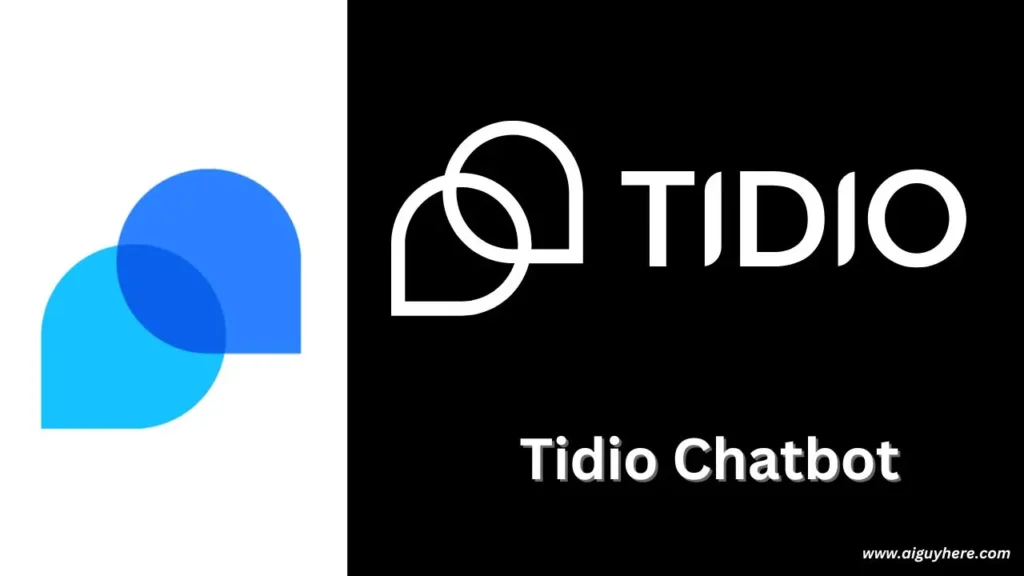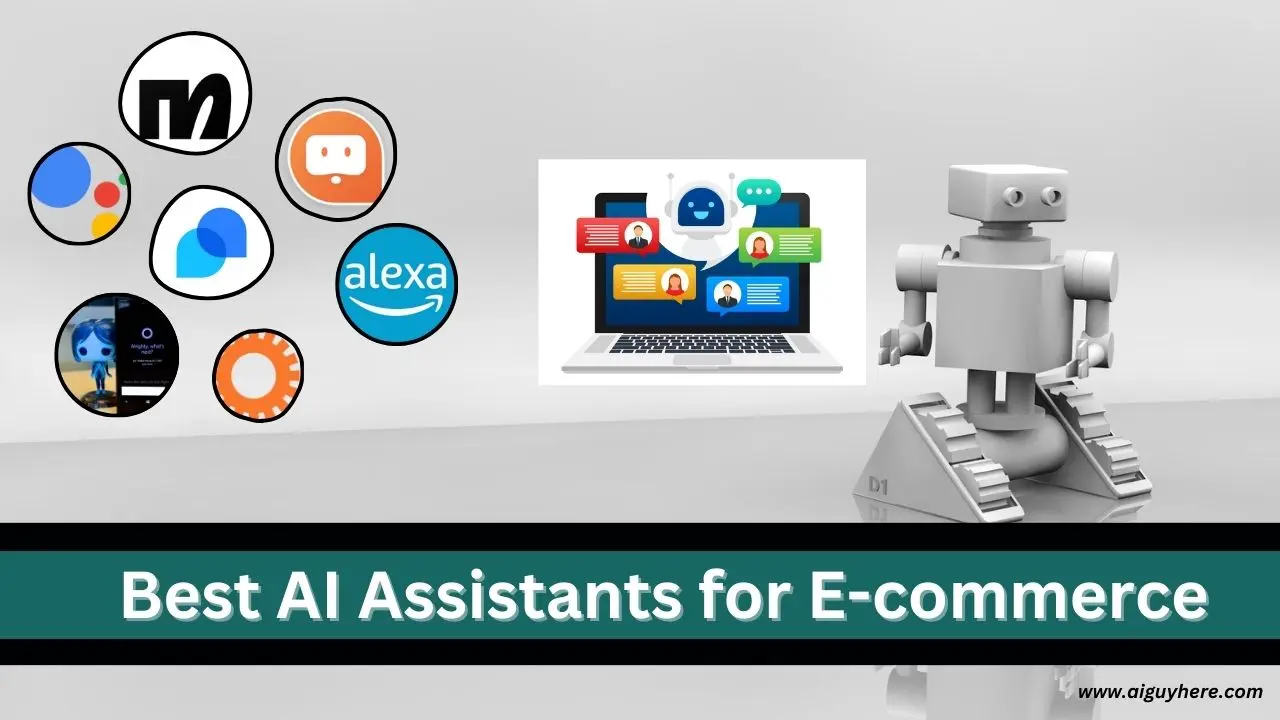E-commerce is booming. With the rise of online shopping, businesses need tools to help them manage their operations. AI assistants are a game-changer in this space. They can handle customer service, manage inventory, and even personalize shopping experiences. In this article, we’ll dive deep into the best AI assistants for e-commerce. We’ll look at their features, benefits, and how they can boost your business.
What are AI Assistants?
AI assistants are software programs. They use artificial intelligence and machine learning to perform tasks. These tasks can range from answering customer queries to predicting stock needs. AI assistants learn from data. They get better over time. This makes them invaluable for e-commerce businesses.
Benefits of Using AI Assistants in E-commerce
1. Enhanced Customer Service
AI assistants can handle customer queries 24/7. They can provide instant responses. This leads to better customer satisfaction. No more waiting for hours to get a response.
2. Personalized Shopping Experience
AI can analyze customer behavior. It can recommend products based on past purchases. This makes the shopping experience more personalized and engaging.
3. Efficient Inventory Management
AI assistants can predict demand. They can help in managing inventory more efficiently. This reduces the chances of stockouts and overstocking.
4. Cost-Effective
Hiring human staff for every task can be expensive. AI assistants can handle many tasks. This reduces the need for a large workforce. It saves costs.
5. Improved Decision Making
AI can analyze vast amounts of data. It can provide insights and trends. This helps in making informed decisions.
Top AI Assistants for E-commerce in 2024
1. Amazon Alexa
Amazon Alexa is one of the most popular AI assistants. It can integrate with your e-commerce platform. Alexa can handle customer queries. It can provide product recommendations. It can also assist in managing orders.

Key Features:
- Voice-activated commands
- Integration with e-commerce platforms
- Product recommendations
- Order management
Benefits:
- Enhances customer interaction with voice commands
- Provides personalized shopping experiences
- Efficient order management
2. Google Assistant
Google Assistant is another powerful AI assistant. It can be integrated into e-commerce websites and apps. Google Assistant can handle voice and text queries. It can provide personalized product suggestions. It can also assist in tracking orders.

Key Features:
- Voice and text-based interactions
- Integration with e-commerce platforms
- Personalized product suggestions
- Order tracking
Benefits:
- Provides a seamless shopping experience
- Helps in managing customer queries efficiently
- Enhances personalization
3. IBM WatsonX Assistant
IBM WatsonX Assistant is a robust AI solution. It is designed for businesses. It can be customized to meet specific needs. WatsonX Assistant can handle complex queries. It can provide detailed responses. It can also be integrated with various e-commerce platforms.

Key Features:
- Highly customizable
- Integration with multiple platforms
- Handles complex queries
- Provides detailed responses
Benefits:
- Offers a tailored solution for businesses
- Efficiently manages customer interactions
- Enhances customer satisfaction with detailed responses
4. Microsoft Cortana
Microsoft Cortana is an AI assistant that can be integrated with e-commerce platforms. It can handle customer queries. It can provide product recommendations. Cortana can also assist in managing orders and inventory.

Key Features:
- Voice-activated commands
- Integration with e-commerce platforms
- Product recommendations
- Order and inventory management
Benefits:
- Enhances customer service with voice commands
- Provides personalized shopping experiences
- Efficient order and inventory management
5. Chatbot by HubSpot
HubSpot offers a powerful chatbot solution. It is designed for businesses of all sizes. The chatbot can handle customer queries. It can provide product recommendations. It can also assist in lead generation and follow-ups.

Key Features:
- Customizable chatbot
- Integration with CRM systems
- Handles customer queries
- Provides product recommendations
Benefits:
- Enhances customer service with quick responses
- Helps in lead generation and follow-ups
- Provides a seamless shopping experience
6. Zendesk Answer Bot
Zendesk Answer Bot is designed to improve customer support. It can handle common customer queries. The bot can provide instant responses. It can also guide customers to the right resources.

Key Features:
- Integration with Zendesk platform
- Handles common queries
- Provides instant responses
- Guides customers to resources
Benefits:
- Enhances customer support with quick responses
- Reduces the workload on human agents
- Improves customer satisfaction
7. Drift Chatbot
Drift offers a conversational AI chatbot. It is designed to engage with customers. The chatbot can handle queries. It can provide product recommendations. It can also assist in lead generation.

Key Features:
- Conversational AI
- Handles customer queries
- Provides product recommendations
- Assists in lead generation
Benefits:
- Engages customers with conversational AI
- Enhances customer service with quick responses
- Helps in lead generation
8. Tidio Chatbot
Tidio provides an AI-powered chatbot solution. It is designed for small and medium-sized businesses. The chatbot can handle customer queries. It can provide product recommendations. It can also assist in lead generation and follow-ups.

Key Features:
- AI-powered chatbot
- Handles customer queries
- Provides product recommendations
- Assists in lead generation and follow-ups
Benefits:
- Enhances customer service with quick responses
- Helps in lead generation and follow-ups
- Provides a seamless shopping experience
9. LivePerson AI
LivePerson offers a powerful AI assistant. It is designed for large businesses. The AI assistant can handle complex queries. It can provide detailed responses. It can also assist in managing customer interactions.

Key Features:
- Highly customizable
- Handles complex queries
- Provides detailed responses
- Manages customer interactions
Benefits:
- Offers a tailored solution for large businesses
- Enhances customer satisfaction with detailed responses
- Efficiently manages customer interactions
10. ManyChat
ManyChat is a popular chatbot platform. It is designed for businesses of all sizes. The chatbot can handle customer queries. It can provide product recommendations. It can also assist in lead generation and follow-ups.

Key Features:
- Customizable chatbot
- Handles customer queries
- Provides product recommendations
- Assists in lead generation and follow-ups
Benefits:
- Enhances customer service with quick responses
- Helps in lead generation and follow-ups
- Provides a seamless shopping experience
How to Choose the Right AI Assistant for Your E-commerce Business
Choosing the right AI assistant is crucial. Here are some factors to consider:
1. Business Size
The size of your business matters. Small businesses may not need complex solutions. Large businesses may need more advanced features.
2. Budget
Budget is a crucial factor. Some AI assistants are expensive. Others are more affordable. Choose one that fits your budget.
3. Integration
Ensure the AI assistant integrates with your existing systems. This includes your e-commerce platform, CRM, and inventory management systems.
4. Customization
Some businesses have specific needs. Ensure the AI assistant can be customized to meet those needs.
5. User-Friendliness
The AI assistant should be easy to use. Both for your team and your customers.
6. Customer Support
Good customer support is essential. Ensure the provider offers reliable support.
Additional: 10 Best AI Tools for your E-commerce
Conclusion
AI assistants are transforming the e-commerce industry. They offer numerous benefits. From enhanced customer service to efficient inventory management. Choosing the right AI assistant can give your business a competitive edge. Consider your business size, budget, integration needs, customization options, user-friendliness, and customer support when making a decision. With the right AI assistant, you can take your e-commerce business to new heights.
In summary, AI assistants can help your e-commerce business in many ways. They can improve customer service, personalize the shopping experience, manage inventory efficiently, save costs, and provide valuable insights. There are many AI assistants available, each with its own set of features and benefits. By carefully considering your business needs and choosing the right AI assistant, you can enhance your e-commerce operations and achieve greater success.
FAQs: AI assistants for e-commerce
What are AI assistants used for in e-commerce?
AI assistants in e-commerce are used for a variety of tasks, including:
1. Handling customer queries 24/7 through chatbots or voice assistants.
2. Providing personalized product recommendations based on customer behavior and past purchases.
3. Assisting in managing inventory by predicting demand and reducing stockouts or overstocking.
4. Offering insights and trends to aid in better decision-making.
5. Streamlining order management and tracking.
How do AI assistants improve customer service in e-commerce?
AI assistants improve customer service by:
1. Providing instant responses to customer inquiries, reducing wait times.
2. Being available 24/7, ensuring continuous support.
3. Offering personalized interactions based on customer data.
4. Handling multiple queries simultaneously, increasing efficiency.
5. Guiding customers through their shopping journey, from product recommendations to checkout.
Can AI assistants help in increasing sales for e-commerce businesses?
Yes, AI assistants can help increase sales by:
1. Providing personalized product recommendations, which encourage customers to make additional purchases.
2. Enhancing the customer experience, leading to higher customer satisfaction and repeat business.
3. Offering targeted promotions and discounts based on customer preferences.
4. Assisting in upselling and cross-selling products.
5. Reducing cart abandonment rates by providing timely assistance during the checkout process.
Are AI assistants cost-effective for small e-commerce businesses?
AI assistants can be cost-effective for small e-commerce businesses because they:
1. Reduce the need for a large customer service team by automating responses to common queries.
2. Operate 24/7 without the need for breaks, increasing efficiency.
3. Provide scalable solutions that can grow with the business.
4. Offer affordable options tailored to small business needs, with some platforms providing free or low-cost plans.
What are some popular AI assistants used in e-commerce?
Some popular AI assistants used in e-commerce include:
1. Amazon Alexa
2. Google Assistant
3. IBM Watson Assistant
4. Microsoft Cortana
5. HubSpot Chatbot
6. Zendesk Answer Bot
7. Drift Chatbot
8. Tidio Chatbot
9. LivePerson AI
10. ManyChat
How do AI assistants integrate with e-commerce platforms?
AI assistants integrate with e-commerce platforms through APIs (Application Programming Interfaces) and plugins. This integration allows the AI assistant to access and manage various aspects of the e-commerce platform, such as:
1. Customer data and interaction history
2. Product catalogs and inventory levels
3. Order processing and tracking information
4. Payment gateways and transaction details
5. Marketing and CRM (Customer Relationship Management) tools
What features should I look for in an AI assistant for my e-commerce business?
When choosing an AI assistant for your e-commerce business, look for features such as:
1. Seamless integration with your existing e-commerce platform and tools
2. Customization options to tailor the assistant to your specific business needs
Ability to handle both voice and text interactions
3. Robust natural language processing (NLP) capabilities for accurate understanding and responses
4. Comprehensive customer support and training resources
5. Scalability to accommodate business growth
6. Analytics and reporting tools to track performance and gain insights
How do AI assistants personalize the shopping experience for customers?
AI assistants personalize the shopping experience by:
1. Analyzing customer behavior and purchase history to recommend products that align with their preferences
2. Offering personalized promotions and discounts based on individual customer data
3. Providing tailored responses and interactions that reflect the customer’s past interactions and preferences
4. Assisting customers in finding products quickly through intelligent search and filtering options
5. Creating dynamic and personalized shopping journeys for each customer
What are the challenges of implementing AI assistants in e-commerce?
Challenges of implementing AI assistants in e-commerce include:
1. Ensuring data privacy and security, as AI assistants often handle sensitive customer information
2. Integrating with existing systems and platforms without disrupting operations
3. Training the AI assistant to accurately understand and respond to diverse customer queries
4. Managing customer expectations and ensuring a smooth transition from human to AI-driven interactions
5. Continuously updating and improving the AI assistant to adapt to changing customer needs and market trends
Can AI assistants handle complex customer queries?
Yes, advanced AI assistants can handle complex customer queries by:
1.Utilizing sophisticated natural language processing (NLP) to understand and interpret complex questions
2. Accessing a vast database of information to provide detailed and accurate responses
3. Escalating queries to human agents when necessary for more in-depth assistance
4. Learning from interactions over time to improve their ability to handle complex queries
5. Integrating with knowledge bases and support systems to provide comprehensive answers




